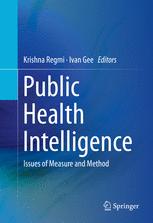

Most ebook files are in PDF format, so you can easily read them using various software such as Foxit Reader or directly on the Google Chrome browser.
Some ebook files are released by publishers in other formats such as .awz, .mobi, .epub, .fb2, etc. You may need to install specific software to read these formats on mobile/PC, such as Calibre.
Please read the tutorial at this link: https://ebookbell.com/faq
We offer FREE conversion to the popular formats you request; however, this may take some time. Therefore, right after payment, please email us, and we will try to provide the service as quickly as possible.
For some exceptional file formats or broken links (if any), please refrain from opening any disputes. Instead, email us first, and we will try to assist within a maximum of 6 hours.
EbookBell Team

4.0
46 reviewsThe first textbook on public health intelligence presents in depth the key concepts, methods, and objectives of this increasingly important competency. It systematically reviews types of evidence and data that comprise intelligence, effective techniques for assessment, analysis, and interpretation, and the role of this knowledge in quality health service delivery. The book’s learner-centered approach gives readers interactive context for mastering the processes of gathering and working with intelligence as well as its uses in informing public health decision-making. And its pragmatic framework will help establish standards for training, practice, and policy, leading to continued improvements in population health.
This path-breaking resource:
Public Health Intelligence - Issues of Measure and Method is bedrock reading for postgraduate and advanced undergraduate students in public health, global health, health policy, health service management, nursing, medicine, statistics, epidemiology, quantitative methods, health intelligence, health inequality, and other allied healthcare fields. It is also a salient text for public health practitioners and health policymakers.
"This book is a 'must-read' for students contemplating a career in Public Health or for anyone who is already in practice. The breadth of chapters from respected authors provide a detailed overview and critique of issues related to public health intelligence. A key strength of the book is that it is written with both students and practitioners in mind."
Gurch Randhawa, PhD, FFPH, Professor of Diversity in Public Health & Director, Institute for Health Research, University of Bedfordshire, UK